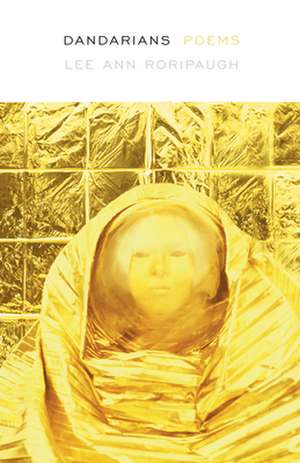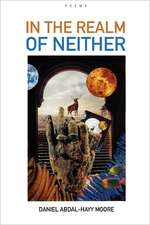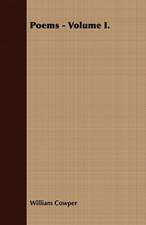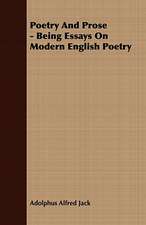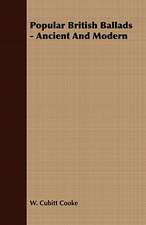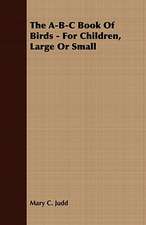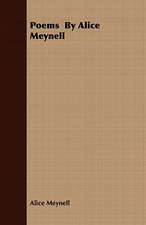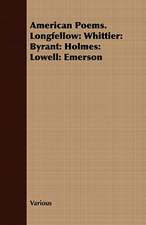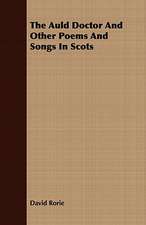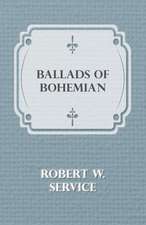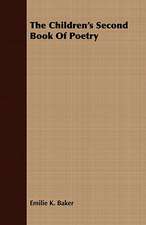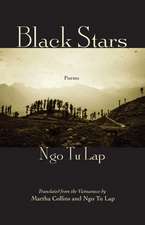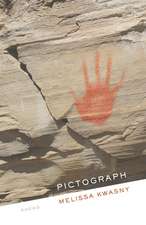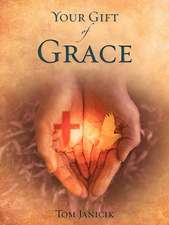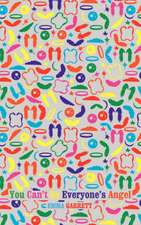Dandarians
Autor Lee Ann Roripaughen Limba Engleză Paperback – 8 sep 2014
Hailed by Ishmael Reed as "one of our brightest talents," Lee Ann Roripaugh's fourth collection of poems maps the illusory and ephemeral connection between identities and language.
Based on sources as diverse as Heian-period Japanese women writers and the world of science fiction, and drawing on her own experience as a second-generation Japanese American, Dandarians explores a series of "word betrayals"-English words misunderstood in transmission from her Japanese mother that came to take on symbolic ramifications in her early years. Co-opting and repurposing the language of knowledge and of misunderstanding, and dialoguing in original ways with notions of diaspora and hybrid identities, these poems demonstrate the many ways we attempt to be understood, culminating in an experience of aural awe.
At once wonderfully lyrical and strikingly acute, Dandarians will further establish Lee Ann Roripaugh as one of the most important and original voices in contemporary Asian American literature.
Preț: 79.86 lei
14.14€ • 16.51$ • 12.27£
Carte tipărită la comandă
Livrare economică 25 februarie-11 martie
Specificații
ISBN-10: 157131458X
Pagini: 98
Dimensiuni: 137 x 213 x 10 mm
Greutate: 0.16 kg
Editura: Milkweed Editions
Cuprins
Part I
The Planet of Dandar
Hiroshima, Mon Amour
Chasing the Dragon
Imprint
Griots’ Signposts
Trompe l’Oeil: The Annotated Version
Part II
Senchimental
Butch/Femme in the Streets/Sheets
Unswallowing
Of Course I’m Nobody . . . But Who Are You?
Antimacassar
Skywriting
Daylight Savings Time: An Interrogatory
Part III
Animoaney
Spillover
Bruised Interrogation
Annealing
1. Like a Blown Fuse
2. Crackpot
3. Handle With Care
4. Raku
Thirteen Ways of Looking at the Vermillion River
Sleepless Graffiti
Part IV
Dee Aster
Hola, Hola
Talk Television: Mutual of Omaha’s Wild Kingdom
Ten Nights’ Dreams
1. Georgia O’Keefe
2. Gem City: A Migraine Dream
3. Rehab
4. Open It
5. Biohazard
6. Garmonbozia
7. B. Head
8. Book ’Em, Danno
9. “You’re Going to Make Me Lonesome When You Go”
10. Extinguish
Part V
Femanint
Underworlded
’Round About Midnight
Concatenations: A Reprise
Inquiline
Fibonacci
Irezumi (or, Tattoo You)
The Violin Thief
Recenzii
—Carol Guess, author of Darling Endangered and Doll Studies: Forensics
"In her fourth collection, Dandarians, Lee Ann Roripaugh mobilizes the Japanese haibun to investigate the dialectic of trauma and care that gives rise to a particularly luminous poetic sensibility. There is the culture shock of the mixed-ethnicity child who inherits her Asian mother's mispronunciation of "dandelions," transforming one invasive species into an interplanetary race of 'Dandarians.' ('If you're not careful,' writes Roripaugh, 'I'll take over your garden'). There is also the trauma of abuse, of a woman forced 'to repeat the things that were done to me that I have no names for yet.' And yet the compound fractures of history are continuously mended by the grace of this writer's wit--'I love the word antimacassar, though I have no use for antimacassars themselves'--and her openness to the shocks of beauty that surround us. Who else could see a caterpillar dangling from its silk thread as 'a showgirl in the Ziegfield follies straddling a glittering sliver of moon'? Dandarians is a work of beauty and resilience: the beauty of resilience, and the resilience of beauty."
—Srikanth Reddy, author of Facts for Visitors
"Pleasure and danger and recollected frustration, the prismatic color of the Great Plains, the allure of exoplanets and the generative powers that wait in a child’s solecisms and mispronounciations: those are only some of the ‘favorite things’ (as Coltrane did not put it) in Lee Ann Roripaugh’s best book yet, a takeup of prose poems and lyric essays at once exuberant about tomorrow, about the sexy detail all over the visible and audible world, and serious about childhood, about her family’s tough yesterdays. Here are pages to cherish simply for the way they make up words, or put words together (fish solfège!) but here, too, is the resonant voice of a newly confident author: Roripaugh’s associations, juxtapsitions, recollections, digressions take her from purple riverbanks to stark regret and back to present-day starshine: ‘I’ll take over your garden,’ the poet promises. You’d do well to let her in.”
—Stephen Burt, author of Belmont
"I am completely in awe of and in love with Lee Ann Roripaugh's Dandarians, of the perfection of her images, the intensity of her language, the glittering and gorgeous union of these two. I stall and stutter, a willing captive to her phrases. She writes, 'Sun’s cold high beam glaring everywhere—ricocheting off snow, stretching sky’s dome like a taut blue balloon, sluicing in through every window.' There is so much to say that this book is about; there is so much to say that this book does. I loved reading about Roripaugh’s linguistical mishaps, of her experiences, so akin to mine, of being a half. I loved being a Dandarian, enmeshed in Roripaugh’s Dee Asters."
—Jenny Boully, author of The Body: An Essay
Extras
Prismed through the scrim of my mother’s Japanese accent, I think dandelions are Dandarians. Dan-dare-ee-uns. Futuristic, alien?like something named after late-night B-movie space creatures from an undiscovered planet.
Maybe this is why the disturbingly lurid fronds seem too yellow to me. They seethe, I believe, with a feverishly incandescent radioactivity. I’m convinced this explains the obsessive, anxiety-laced fervor with which my parents uproot them from our lawn. As if under threat of colonization.
(Years later, reading Ray Bradbury’s Dandelion Wine, I’m shocked at the thought of imbibing dandelions as alcoholic libation. I always secretly assumed dandelions were poisonous. I’m convinced it must be a hoax. I begin to distrust the boundaries between Bradbury’s literary fiction and his science fiction.)
Because I’m the only one in my kindergarten class who can read and write, there’s shock and fallout when my confusion over Dandarians and dandelions is discovered. I receive special coaching. Slowly and loudly, as if I have suddenly become impaired: “You say dandy. Then say lion.”
At home, because it seems important, I pass this secret knowledge on to my mother: “You have to say dandy,” I tell her. “Then say lion.”
Her slap flares a stung handprint on my cheek like alien handprints in the T.V. show Roswell. “I’m the mother,” she says. “You the daughter.” As if that explains everything. As if in another year or so I won’t make phone calls on her behalf, pretending to be my own mother so she won’t have to struggle to make herself understood to hairdressers, pharmacists, the PTA. Can they really not understand her? Or do they simply willfully refuse to comprehend?
I am five. I understand I’ve hurt my mother’s feelings without meaning to. I understand Dandarians are toxically radioactive. Just not in the ways I’d originally thought.
And so when I tell you I’m an alien?a Dandarian, hailing from the planet Dandar?I am, of course, mostly joking. But not entirely. When I tell you I’m radioactive, it’s mostly a posture. But not entirely.
On Dandar, we are partial to the theme song from Hawaii Five-Oh. We like the color yellow. All the best dresses chosen by mothers for daughters come in the color yellow. We eat osembei and sometimes mochi after school with hot green tea, speak our very own pidgin English at the kitchen table when my father’s at the office. My father doesn’t approve?maybe because our pidgin’s sometimes laced with the best new swear words I’ve learned at school. We never, ever answer the phone without proper deployment of the Secret Code.
Here’s my universal translation device. Although when fog threads the streets like a rough shaggy yarn too unruly to slip through the eye of a sewing needle, the reception becomes white static and everything garbles to Babel.
Half-life.
Decay.
This is my ray gun.
Do you know the Secret Code?
